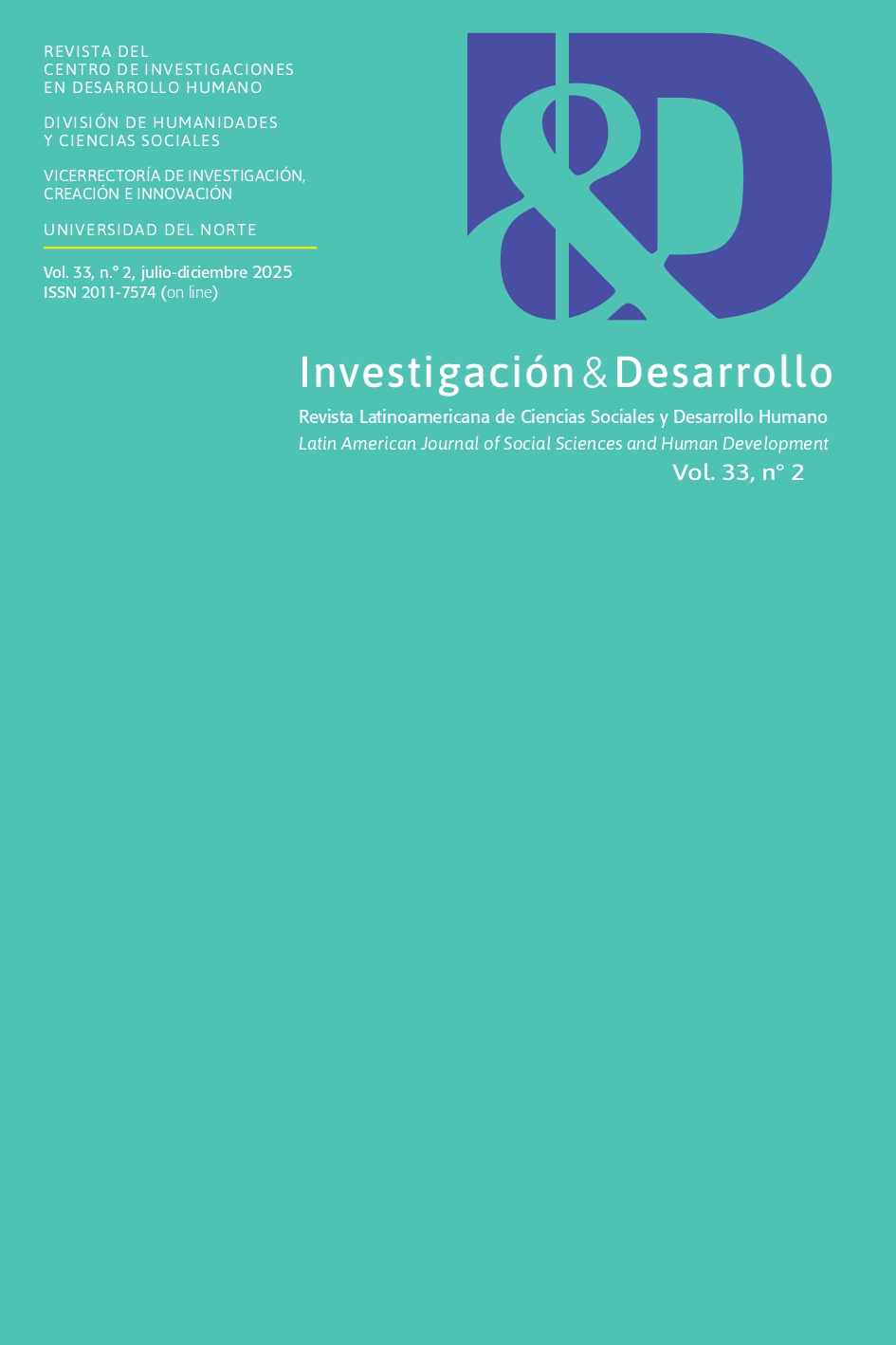Opening the Social Sciences: Historical Sociology from Latin America
DOI:
https://doi.org/10.14482/INDES.33.02.924.861Keywords:
Latin American sociology, historical sociology, Latin America, dependenceAbstract
Latin American Sociology has been characterized since the last century by offering a range of theories and methodologies to study the social experiences of our continent. Most sociologists in Latin America have had a heterogeneous, hybrid training that ranges from the fields of Economics, Political Science, Anthropology, Historiography, and Demography (what I will generally call Social Sciences). In this article, I propose to make a general presentation of concepts and themes such as the definition of Latin America, the current debate on 'situations of dependency', the role of intellectuals, and the question of democracy. The methodological approach I develop is Historical Sociology, which has been a pioneering practice in classical intellectuals of Latin America, either explicitly or implicitly when studying social changes and making comparisons at different scales (national, continental, and planetary). It is from this methodological proposal that I have made a series of problematizations that revolve around the conceptualization of Latin America, the academic institutionalization of sociology within the social sciences, the theory of dependency, and the ups and downs of the long 20th century that it has oscillated in a large part of Latin American territory between authoritarianism, democracies, and military-bourgeois dictatorships.
References
Ansaldi, W. (2022). ¿Cómo investigar el enigma América Latina? Nueve proposiciones para capturar una liebre muy esquiva. Estudios Latinoamericanos, 50, 19-50.
Ansaldi, W. y Giordano, V. (2012 y 2016). América Latina. La construcción del orden, tomos I y II. Ariel.
Bagú, S. (1949). Economía de la sociedad colonial: Ensayo de historia comparada de América Latina. Ateneo.
Bagú, S. y Gussoni, H. (1967). El desarrollo cultural en la liberación de América Latina. Biblioteca de Cultura Universitaria.
Bambirra, V. (1977). Teoría de la dependencia: una anticrítica. Era.
Beigel, F. (2019). Cien años de la Sociología Latinoamericana como tradición regional. En Key Texts for Latin American Sociology (pp. 186-200). (P. Bayle, Trad.). Sage.
Beigel, F. (2010). La teoría de la dependencia en su laboratorio. En F. Beigel, Dir. Autonomía y dependencia académica. Universidad e investigación científica en un circuito periférico: Chile y Argentina (1950-1980) (pp.129-144). Biblos.
Bethell, L. (2012). Brasil y América Latina. Revista de historia intelectual: Prisma, 16, 53-78.
Blanco, A. y Jackson, L. C. (2017). Jefes de Escuela en la sociología
latinoamericana: Gino Germani, Florestan Fernandes y Pablo González Casanova. Revista Sociológica, 32(90), 9-46.
Cardoso, F. H. y Faletto, E. (1975 [1969]). Dependencia y desarrollo en América Latina. Siglo XXI.
Acosta, Y., Ansaldi, W., Giordano, V. y Soler, L. [Coords.] (2015). América Latina piensa América Latina. Clacso.
Mariátegui, J. C. (2010 [1929]). Tesis ideológicas. El problema de las razas en América Latina. En La Tarea Americana. Prometeo-Clacso.
Marx, K. (1975). El capital, vol. I. Editorial Siglo XXI.
Prebisch, R. (1949). El Estudio de la CEPAL. Santiago de Chile: mimeo.
Stavenhagen, R. (1965). Siete tesis equivocadas sobre América Latina. Política Externa Independiente, Nº 1.
Wallerstein, I. (1979). El moderno sistema mundial I. El mercantilismo y la consolidación de la economía-mundo europea, 1600-1750. Siglo XXI.
Downloads
Published
How to Cite
Issue
Section
License
Copyright (c) 2024 Franco Riquelme

This work is licensed under a Creative Commons Attribution-NonCommercial 4.0 International License.
Research & Development provides free access to its content to those who register on the website under the principle that making research freely available to the public supports greater global knowledge sharing.
It runs under a Creative Commons CC BY-NC 4.0 License.
Neither the submission nor the processing of the articles implies costs for the authors or the institutions of which they are part.














